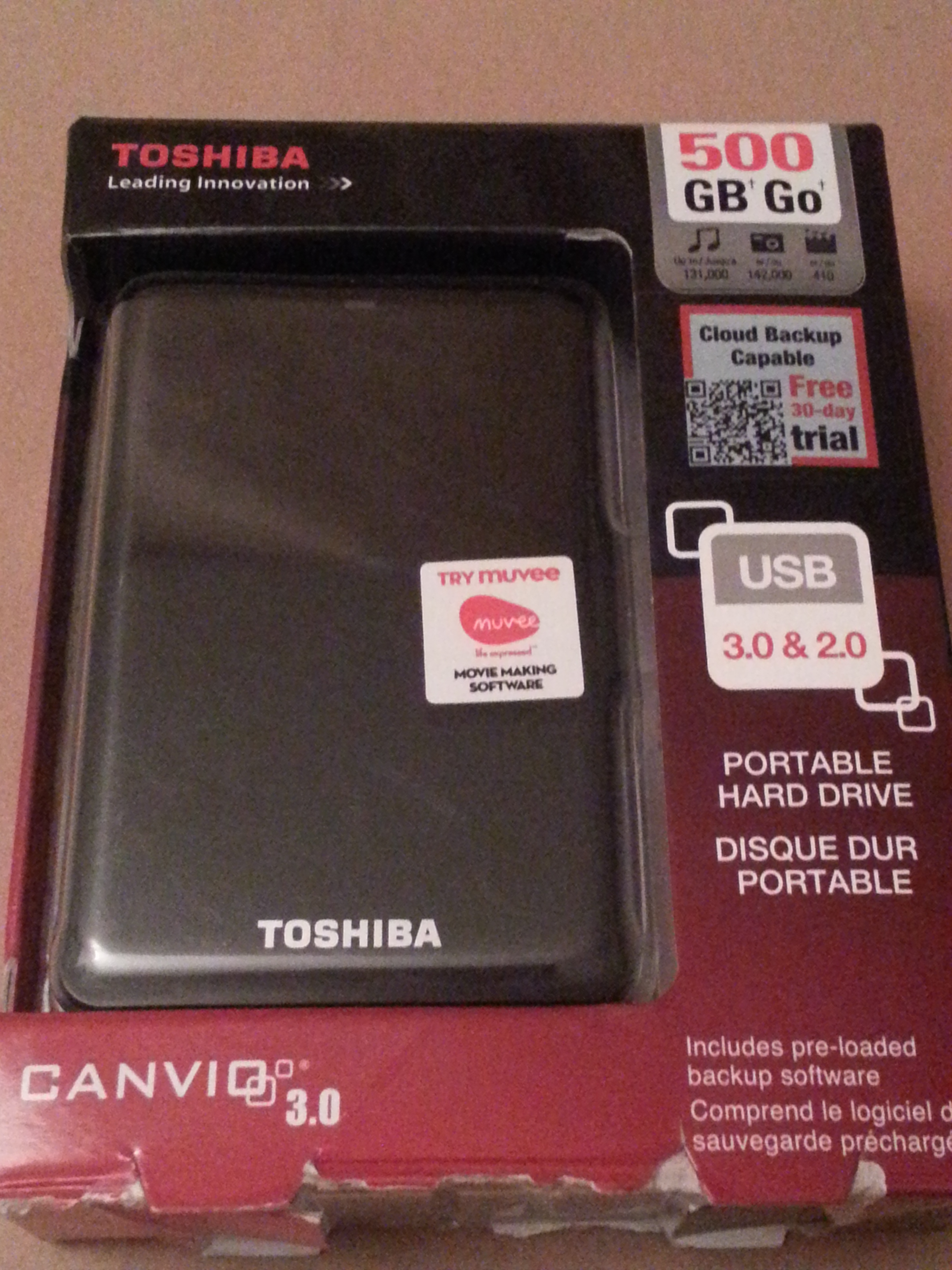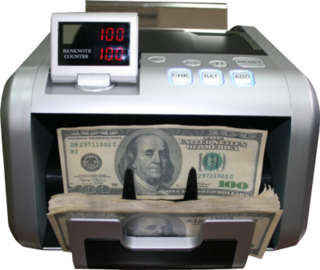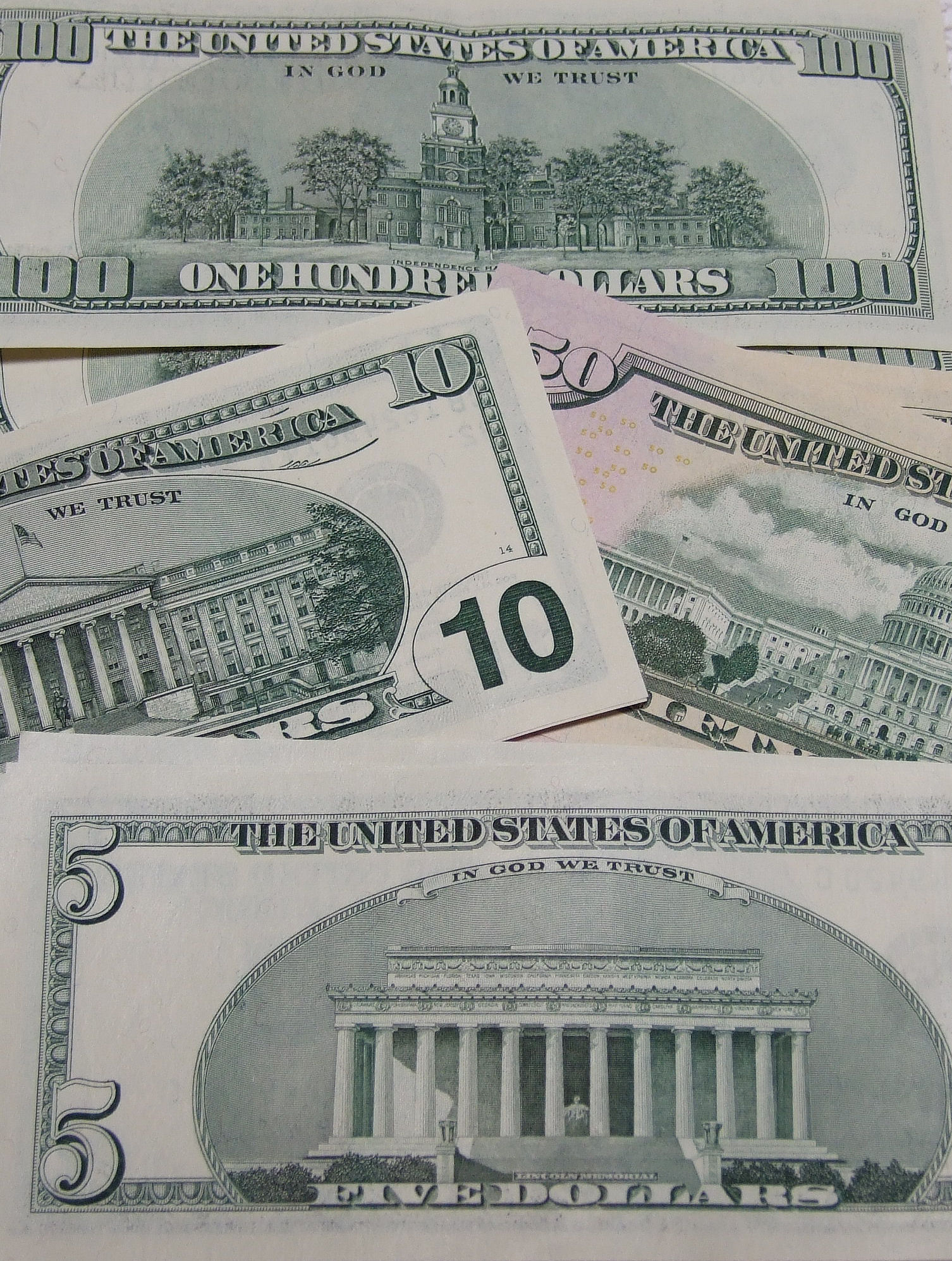Everything can be a pre-tax deduction
 A Pre-tax deduction refers to things done the governments preferred way that reduce the amount of income you pay taxes on. For example if you make $50,000 a year and you put $10,000 into a 401(k) (one of the governments preferred savings methods) then you will only pay taxes on $40,000 a year. This is a nice way to reduce the amount of taxes you pay at the end of the year and with things like a 401(k) the money is taken out of your paycheck before you see it, so you never even have the contributed money. Not only does this prevent you from missing a deposit to your retirement it makes your taxes simpler because you employer tells the IRS that you only earned 40,000.
A Pre-tax deduction refers to things done the governments preferred way that reduce the amount of income you pay taxes on. For example if you make $50,000 a year and you put $10,000 into a 401(k) (one of the governments preferred savings methods) then you will only pay taxes on $40,000 a year. This is a nice way to reduce the amount of taxes you pay at the end of the year and with things like a 401(k) the money is taken out of your paycheck before you see it, so you never even have the contributed money. Not only does this prevent you from missing a deposit to your retirement it makes your taxes simpler because you employer tells the IRS that you only earned 40,000.
Post tax deductions are things like mortgage interest, IRA deductions etc that are tax deductible, which means (Normally) when you pay $5,000 of mortgage interest you will get the tax you paid on that $5000 back at the end of the year. This is what we call a tax refund, it is money you over paid to the government throughout the year. It is like getting change at the grocery store, only you have to wait months and fill out a lot of paperwork to get it.
Both post-tax and pre-tax deductions are tax deductible, which means you do not have to pay taxes on them. The difference is that you don’t get all of your money from post-tax deductions up front. The government still taxes the money and then gives it back to you when you file your taxes. Maybe you don’t mind giving Uncle Sam an interest free loan or think he can spend your money better than you can but I don’t think so.
When I moved to my new job recently I was disappointed to learn that they did not do a matching 401(k) contribution. In order to make up for my disappointment they offered me a signing bonus (read onetime bonus) I asked for that money as part of my salary(so I could have it every year), which they were happy to do. (Always negotiate your salary and benefits) I had intended to roll over my old 401(k) to the new one for my company, but instead decided to roll it into a traditional IRA with my old friends over at Fisherwealth. (To the best of my knowledge no relation, but we have done business together for years). I can now take the money I negotiated and deposit it to my new IRA. But, what am I to do about the money being a post-tax deduction? I am being taxed on that money even though it is tax deductible.
This is when I realized that if you know how things work you can make almost anything a pre-tax deduction. When I started my new job they asked me to fill out a form to determine how much money the federal and state governments should take out of my income every paycheck. To pay my taxes. Now this isn’t a nice simple form like take out $100 per check, no it is a complicated formula so you most people don’t realize what is going on. But, as I have written about here, you can get your tax refund all year long by filling out this form properly.
This way all your tax deductible expenses including your child credits etc, can be pre-tax. The IRS has a handy little calculator to determine how to eliminate your federal refund and get the most out of your paycheck. It is here if you want to check it out.
Do you prefer to get a big refund or a bigger paycheck?
Image by irsein
How to compare job offers
When you are faced with a new job offer (other than being extremely blessed) you may be in for a rough ride. How do you make such an important decision? How are you to compare job offers? If you are like me you may try to analyze and quantify every detail of each position in order to make a decision. It can be difficult and there are a lot of things to think about. This article will hopefully assist you with such a decision.
I have just gone through this process myself so it is clear in my mind.
The Intangibles.
Obviously there will be things you can’t quantify. If you have a really great relationship with your coworkers. (or a really bad one) If you are working for a non-profit that is really important to you. These are things that you can’t convert into a formula to make a decision so for the sake of this article I am going to ignore them. You will have to determine how important these things are for yourself.
Base Pay
This is the easiest to compare and the largest portion of your compensation. This is easily examined simply by looking at what they are going to pay you if you are salary or by doing some simple math if you are hourly. Hourly rate multiplied by 2080 gives you a yearly rate assuming no overtime.
Insurance costs
Having just lived through this I learned that my old employer had really great insurance rates and where ever I went I was looking at doubling my insurance costs. Always ask for this information before accepting a new job you may learn that you have actually taken a pay cut because an increased cost of insurance has eaten up your raise.
Vacation
Starting over in a new job often means that you are losing paid time off or vacation. I compared this by multiplying it by my daily salary rate to determine how much the vacation was worth in dollars.
Commute
The book “Your Money or Your Life” is great for helping you see all the costs associated with your job, including commute and clothes. The IRS millage rate for 2014 is $.56 so take your commute and multiply by this number to make sure you won’t be losing money in the cost of driving.
Additionally, I tried to quantify the hours I was going to spend in my commute. One of the offers I was looking at put me far away from home and into heavy traffic so my actual commute would have been longer than the millage lead me to believe.
401(k)
The match, if any for your 401(k) can be a large difference between two jobs. If your current jobs matches 50% of the first 4% of your salary and your new job doesn’t offer a match then you are giving up all that tax free money.
Other Extras
There may be other offerings from your employers, some of them get very creative to attract top talent. What else do you think you should examine?
Image by winnifredxoxo
My extra income adventure: A New Series
 I am going to be kicking off a new series on this blog. I have been interested in producing some extra income in my life in order to help to pay for the down payment for my house. I have often looked into passive income ideas and it seems like most of them are anything but passive. Passive income is income that you don’t directly trade time and labor for money. Examples would be royalties, or licensing etc. Although my book would fall under this category I don’t have any delusions about making millions of dollars from it. (although it would be nice)
I am going to be kicking off a new series on this blog. I have been interested in producing some extra income in my life in order to help to pay for the down payment for my house. I have often looked into passive income ideas and it seems like most of them are anything but passive. Passive income is income that you don’t directly trade time and labor for money. Examples would be royalties, or licensing etc. Although my book would fall under this category I don’t have any delusions about making millions of dollars from it. (although it would be nice)
I had considered getting a second job, but didn’t want to give up time with my children who I only see 3 hours a night as it is. So, one of my qualifications for these ideas is that I am not simply trading my time for money directly. (I will do this job for x dollars) I hope to find other ways to work once and make money over and over with that work. I plan on doing some of this by outsourcing some of the work that I can’t do, or don’t have time to do. If I do my calculations correctly the Virtual Assistant (VA) should pay for themselves.
I have some money that I am able to invest in business ideas to capitalize a few of them, which makes me fortunate. If you want to see this done with almost no money check out UpwardsofTwenty. He is starting with $20 dollars and investing in interesting ways to grow from that $20 to where ever he ends up.
My plan is to start with some small ideas that I can put into place once and make more than an hourly wage in the process. I am not going to throw my money at any get rich quick schemes, that would be bad steward ship although even those crack pot ideas have real extra income ideas as their kernel of truth.
After I have completed my first venture I will update you with the plan I followed and the money I made. I plan to be as open and honest as I can with this part in the interest of transparency.
In order to keep myself sane I am going to look at any money invested that loses money as the cost of education. I find that I am very hesitant to take risks but hopefully I can break myself of that mindset with some small victories.
First Ebay Sale
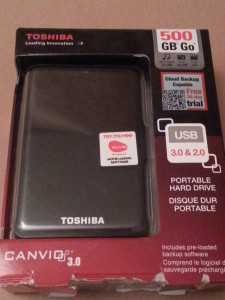 As part of my New Year resolution I have posted my very first Ebay sale. It is a hard drive that has been sitting on a shelf in the box for a while now. The reason for the sale is two fold; we are looking to save up for a down payment for a house and so I am going to try to sell some things we have had around the house that we no longer need and secondly our house feels too crowded with stuff and we are looking to simplify and get rid of things we no longer need or use.
As part of my New Year resolution I have posted my very first Ebay sale. It is a hard drive that has been sitting on a shelf in the box for a while now. The reason for the sale is two fold; we are looking to save up for a down payment for a house and so I am going to try to sell some things we have had around the house that we no longer need and secondly our house feels too crowded with stuff and we are looking to simplify and get rid of things we no longer need or use.
A lot of things have changed since I last looked at selling things on ebay which made my first ebay sale much easier.
- Setting up the listing was incredibly simple – I was able to model my listing after others already in the system and it took care of most of the information for me. I took a few pictures with my phone and up loaded them.
- Shipping was a breeze – I was very conserned with how to deal with shipping. I don’t ship a lot of things and I did a little research with UPS and USPS but turns out ebay has you covered there as well. They knew my product and suggest a flat rate USPS option that I had already concluded I needed. It made me feel much safer.
- Anyone can do a “Buy it Now” – Last time I has looked into it (admittedly a long time ago) only experienced sellers could do a buy it now sale. Meaning you don’t have to play the auction game but could simply buy it outright.
The item sold after a week for $35, which is more than I paid for it. All in all Ebay has improved a great deal since the last time I had looked into selling. It could be a great way to earn some money and simplify your life by getting rid of some things you no longer need.
Automate Your Finances
One of the best steps in getting your budget under control is to automate finances. As much as possible, make your financial matters a hands off activity. This way you are eliminating human error like forgetting to send the payments or spending more than your budget 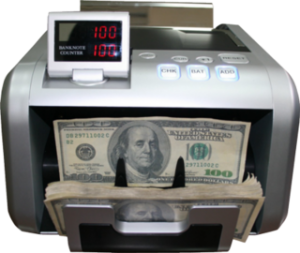 allows, and your savings happens without your effort.
allows, and your savings happens without your effort.
Limit access to money
One of the most effective ways to automate your finances and control your spending is to limit access to your money. Your money is going to be spent the question is if it will be spent where you would like. The best example of this is 401(k). This money is normally taken out of your paycheck before you see it, like taxes. So, you do not have a choice in how you spend that money. Most people never even pay attention to how much money is taken from them in taxes.
This can be done in very simple ways. If your company has a direct deposit option you can limit yourself by only depositing the amount you need for your budget into your main checking account while remaining funds should be deposited into a savings or investment account. This helps control lifestyle creep (the propensity to spend more as you make more) because you don’t actually see an increase in your main bank account where it can be easily spent.
Example:
If your monthly budget for your bills is $1000 and you get paid once per month you would only deposit $1000 into your main checking account. If your paycheck was $1200 then you would deposit $200 in a savings account.
If you got paid every two weeks you deposit $500 per check if you can balance your bills on two different pay periods, that may take some time to set up and get right.
This prevents you from having easy access to “extra money”. I use quotes there because all of your money should have a purpose even if it isn’t immediate, and there should be a plan for all of your money. Don’t let your money sit around and be lazy, send it off to work for you in an interest bearing account, or in an investment of some kind.
Automate your bills
Most utilities offer a budget program which allows you to pay the same amount all year round instead of being hit with high electric bills for your air conditioning in the summer and for your heating in the winter. They will average the last year of your bills and give you one median payment. This allows you to set up a recurring payments of a single amount; no forgetting and no sticker shock on your bills.
For years we split our bills in half and paid half every two weeks with our paychecks, to make sure we didn’t spend it while we were waiting for the bill. It forced us to do some manual work thanks to those three paycheck months but it wasn’t bad. Now we use a different account for monthly bills that doesn’t get touched so we always have enough money and the bills are set to pay the full amount automatically.
How have you automated your finances and made your life simpler?
- Automate your finances
Negotiation Power – The $21,000 Question

Image by Henkster
The key is Negotiation
Many people are afraid of negotiation; they are afraid of being rejected, or of losing out on an opportunity, but not negotiating is costing you money.
Just today I was in a men’s store looking at suits. The guy helping me pulled out one suit but told me that it wasn’t part of the stores buy one get one deal. I tossed him a sceptical look and he immediately changed his mind. “I could do the deal on that suit” he said. Of course you could. I didn’t even have to ask, I just gave him a look. If I wanted those suits that look would have saved me $200 dollars.
Of course, there are many places where negotiation will get you nowhere. Don’t bother talking to the teenager behind the counter at McDonald’s about free fries with that burger; they don’t have the power or the interest to cut you a deal. But you should try it everywhere else, you never know where it may get you. After all, when faced with the choice between a smaller profit no profit most will choose a small profit.
The $21,000 question
This brings me to my $21,000 question. When I was looking to move from my last job to my current one I had just read an MBA document on how to negotiate with your new job and I was determined to try it. I was not an MBA and didn’t feel that I was in a position to negotiate but what did I have to lose?
When I was given the offer it was A LOT more than I was making at the time. I had every reason to scream “yes” immediately, but was still determined to take the chance. I informed them that I was looking at a $3000 bonus from my current job (which was true) and if I left the company now, I would be walking away from that opportunity. “Could you compensate for that with a signing bonus?” was the $21,000 question, I had read it in the MBA document. No one does signing bonuses at my level, it was crazy. The response? “We can add that to your salary offer, so you would get it every year, if that would work for you.” I have been at my current job for 7 years which means that one question has earned me an extra $21,000 over the course of my career. Remember the only time you really have control over your salary is when you take the job, after that you have very little direct control.
Maybe you don’t have that opportunity but there are a lot of places where you can try to negotiate:
- Car Purchases
Not just the price, ask for oil changes, car washes, extended warrantee. - Furniture Purchases
Price, delivery fee, throw in that lamp in the corner(we got a kids lunch box my daughter had been walking around with at the store) - Smaller shops – I try not to because I want to support small businesses, but they do have the most power to offer you a deal.
Where have you negotiated successfully? Tell me about it in the comments.
Give Yourself a Raise
One of the things I like to tell people in my stewardship presentations is that it is possible to give yourself a raise of roughly $2900 a year, depending on your personal situation. Not only is this possible, I highly recommend it to anyone who wants to act responsibly with their money.

Photo by TALUDA
If you are looking to pay off debt, make ends meet, or just invest YOUR money so YOU gain the interest you owe it to yourself and your family to give yourself a raise.
Now for a little background…Every paycheck the government takes a ton of your money before it even hits your pocket and every spring people get really excited that the government makes them fill out paperwork to get back the extra that the government took out in the first place. We call it tax season.
If you get a tax return back every year it means you are giving the government too much money every paycheck and they hold it all year and then give it back to you interest free when you file your taxes.
I don’t want to get political, but I believe it is irresponsible to allow the government to take your money all year only to give it back to you interest free in the spring.
The average tax return in 2011 was $2900. By filling out a new W-4 form you tell the government to take less of your money each paycheck. It reduces your refund but you will have more money in your pocket every paycheck. How do you decide what is right? The IRS actually supplies a handy little calculator for just such an occasion. It will give you the correct number to enter on your W-4 to get you the smallest refund and the largest paycheck. I, personally, like to have just enough money to pay for turbotax but you should do what you are comfortable with. For years before I knew the calculator existed I just moved my W-4 number up a each year so I was paying less every year.
The point is, that is your money they are taking and holding. Imagine going to the grocery store and paying too much for your groceries every week but not getting any change until the end of the year. You wouldn’t be excited about that money at the end of the year! It should have been in your pocket all along. That is exactly what happens with your taxes. People over pay their tax bill and get excited when they get their “change” in one lump sum because they don’t understand the process.
For this to work you must have a regular paycheck which has taxes withheld If you are responsible to pay your own taxes then this won’t work. You must also get a tax refund at the end of the year, if you don’t then you can’t get that money back throughout the year.
If you are looking to get more control over you money, to pay off debt, save for the future or just keep it out of government hands. This is a great first step.
As always you should do you own due diligence when it comes to these issues. This article is for informational purposes only and is not to be considered tax preparation or legal advice.





